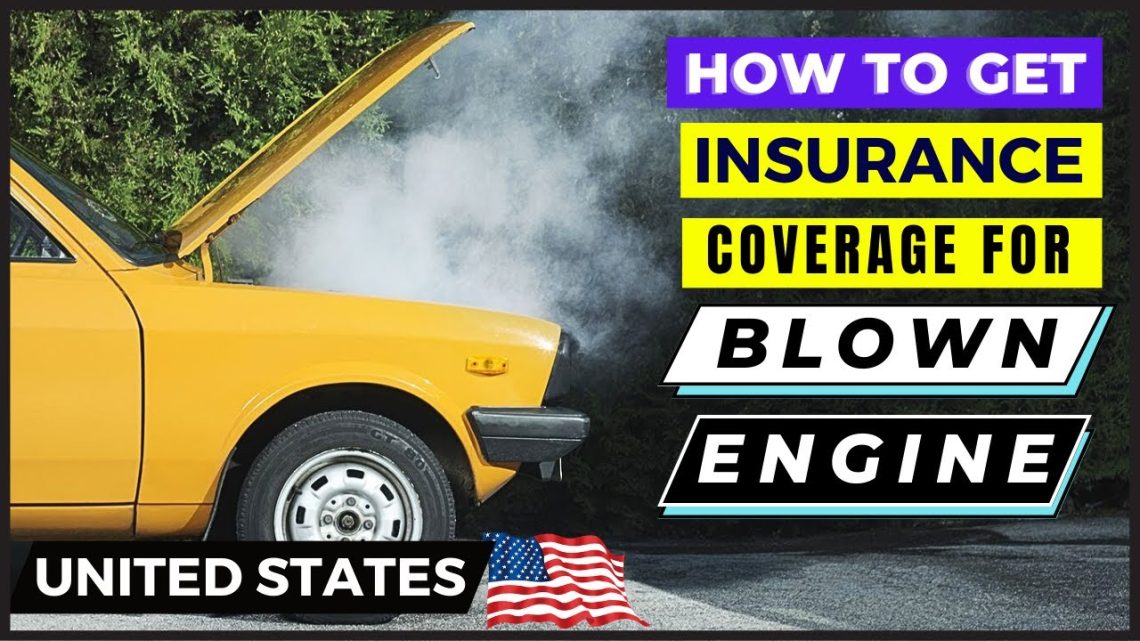A blown engine. Just the words can send shivers down a car owner’s spine! It’s a mechanical nightmare that often translates to a hefty repair bill. But what if it happens to you? Does your car insurance swoop in like a superhero to save the day? The answer, unfortunately, isn’t a simple yes or no. Let’s dive into the complexities of car insurance and engine failure to see when you might be covered, and when you’re likely on your own.
Car Insurance Coverage for a Blown Engine: The Basics
The burning question: will your car insurance cover a blown engine? Generally, the answer is no. Car insurance primarily covers damages resulting from accidents, collisions, or incidents like theft or vandalism. Mechanical failures, including a blown engine, are typically considered maintenance issues, and therefore, the owner’s responsibility.
When Might Car Insurance Cover a Blown Engine?
Okay, so it’s mostly bad news. But there are a few scenarios where your insurance could potentially cover engine damage. Let’s explore them:
Blown Engine Caused by a Covered Accident
If your engine blows as a direct result of an accident that is covered by your insurance (like a collision), then there’s a chance your insurance will cover the damage. For example, if a crash causes significant damage to the engine block, leading to its failure, this might be covered.
Comprehensive Coverage and External Factors Leading to Engine Failure
Comprehensive coverage protects your vehicle from things like:
- Flooding: If floodwater enters your engine and causes it to seize, comprehensive coverage might kick in.
- Fire: If a fire damages your engine, comprehensive coverage will likely cover the repairs or replacement.
- Vandalism: If someone intentionally damages your engine, comprehensive coverage could help.
Essentially, if something external to the engine itself causes the damage, comprehensive coverage is your best bet.
Why Doesn’t Car Insurance Usually Cover a Blown Engine?
The reason car insurance typically doesn’t cover engine failure boils down to the nature of insurance itself. Insurance is designed to protect you from unforeseen and accidental events. Engine wear and tear, lack of maintenance, or inherent mechanical defects are generally considered predictable and preventable. Think of it like this: your insurance isn’t there to cover the cost of changing your oil, right? Engine failure due to neglect often falls into the same category.
The “Wear and Tear” Exclusion
Most car insurance policies have a “wear and tear” exclusion. This exclusion specifically states that damage resulting from normal wear and tear, deterioration, or mechanical breakdown is not covered. A blown engine due to old age or lack of maintenance almost always falls under this exclusion.
Extended Warranties and Mechanical Breakdown Insurance: Alternatives to Consider
So, if car insurance usually doesn’t cover a blown engine, what can you do to protect yourself? Here are a couple of options:
Extended Warranty
An extended warranty, often purchased when you buy a new or used car, can cover mechanical failures, including engine problems. Read the fine print carefully to understand what is covered and what isn’t.
Mechanical Breakdown Insurance (MBI)
Mechanical Breakdown Insurance (MBI) is a type of insurance specifically designed to cover mechanical failures that aren’t related to accidents. It’s similar to an extended warranty, but it’s offered by insurance companies. MBI can be a good option for older vehicles that are no longer covered by a factory warranty.
- Consider the cost: Weigh the cost of the warranty or MBI against the potential cost of engine repairs.
- Read the fine print: Understand the coverage limits, deductibles, and exclusions.
- Shop around: Get quotes from multiple providers to find the best deal.
Frequently Asked Questions (FAQ)
So, does car insurance cover a blown engine? The answer is usually no, but there are exceptions. Understanding your policy, considering extended warranties or MBI, and practicing good car maintenance are your best defenses against the financial blow of a blown engine. Remember to read your policy carefully and ask questions. Being informed is always the best policy (pun intended!). Ultimately, protecting your investment requires a proactive approach and a clear understanding of your coverage options.






